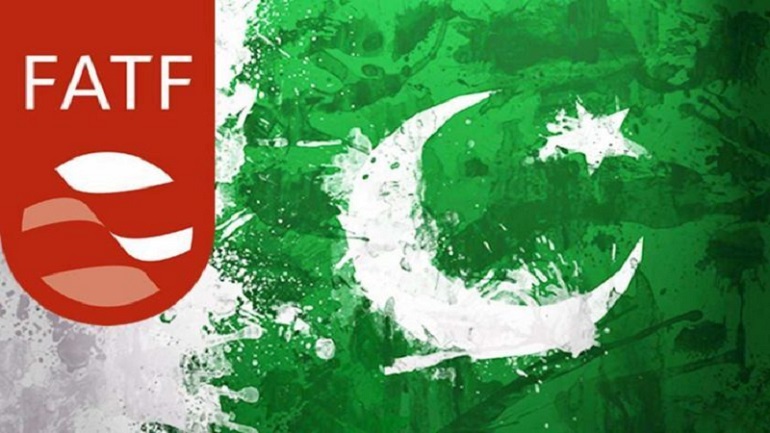Task force president avoids comment on political connotations, says “FATF is a technical body which takes decisions by consensus.
Mauritius and Botswana have been removed from the grey list, whereas Jordan, Turkey, and Mali are included in the list.
PARIS: Despite noting “good progress” in completing the required action items, the Financial Action Task Force (FATF) has retained Pakistan on its grey list.
FATF President Dr Marcus Pleyer announced this while addressing a post-plenary conference on Thursday, saying Pakistan remains on the “increased monitoring list.”
He said that Pakistan has two concurrent action plans with a total of 34 action plan items. “It has now addressed, or largely addressed 30 of the items,” he added.
“It’s a most recent action plan from June this year which largely focused on money laundering deficiencies was issued after FATF’s regional partner APG (Asian Pacific Group) identified a number of serious issues. Overall, Pakistan is making good progress on the new action plan,” he further said, adding that of the 7 new items, four have been “addressed or largely addressed”.
He said this includes showing that financial supervisors are conducting on-site and off-site checks on non-financial sector businesses and enacting legislative amendments to improve international cooperation.
Marcus Pleyer also spoke of Pakistan’s earlier action plan, dating back to June 2018, and which focuses on terrorist financing issues, “Pakistan is still assessed to have largely addressed 26 out of 27 items”.
The president of FATF said Pakistan still needs to demonstrate investigations and prosecutions are being pursued against the senior leadership of UN-designated terror groups. “I thank the Pakistani government for their continued strong commitment to this process.”
When asked to comment on Pakistan’s concerns regarding “political connotations” for its continued presence on the grey list, especially in the backdrop of the Indian foreign minister’s claim that Pakistan is on the grey list because of India, the FATF president said he would not comment on the Indian foreign minister’s statement.
“FATF is a technical body and we make our decisions by consensus so it is not only one country. FATF consists of 29 jurisdictions and decisions are taken with consensus,” he added.
The FATF president said that two countries, Mauritius and Botswana, have been removed from the grey list. Three countries, on the other hand, are coming onto the list — Jordan, Turkey, and Mali.
Meanwhile, Pakistan’s Ministry of Finance in a statement said that the FATF reviewed Pakistan’s progress on its action plans in its plenary meeting on Thursday and it recognized considerable progress made by Pakistan on both the action plans.
With regard to the 2021 Action Plan, Pakistan has completed four of the seven Items. Pakistan has completed these four Action Plan items much before the timelines prescribed by FATF. Progress on the remaining three action items is well underway and it is aimed to complete three action items ahead of timelines set by the FATF.
The remaining action items in the 2021 Action Plan include investigation and prosecution of money laundering cases, confiscation of assets and UN listings. “Regarding the 2018 Action Plan, Pakistan submitted a comprehensive progress report on the last remaining Action Plan item,” the statement read. “FATF will undertake the next review of Pakistan’s progress in February 2022,” read the statement.
It added that Pakistan is fully committed to completing both its action plans in cooperation with FATF and its international partners. “The high-level political commitment, which is driving its revamped AML/CFT regime, is widely recognised by the international community,” the statement said.
It is pertinent to mention here that Pakistan has been on the FATF’s grey list since June 2018.


